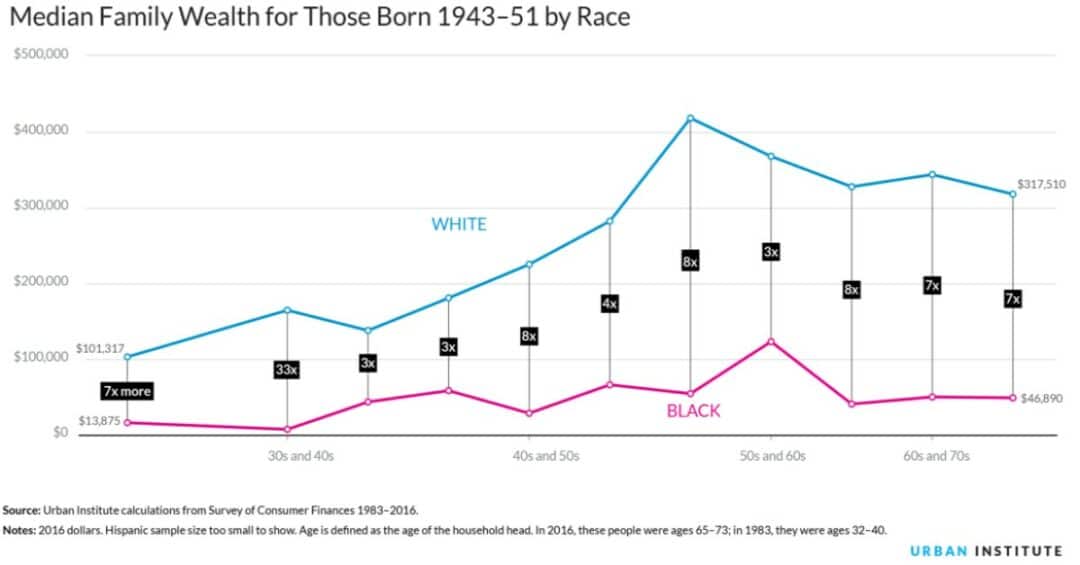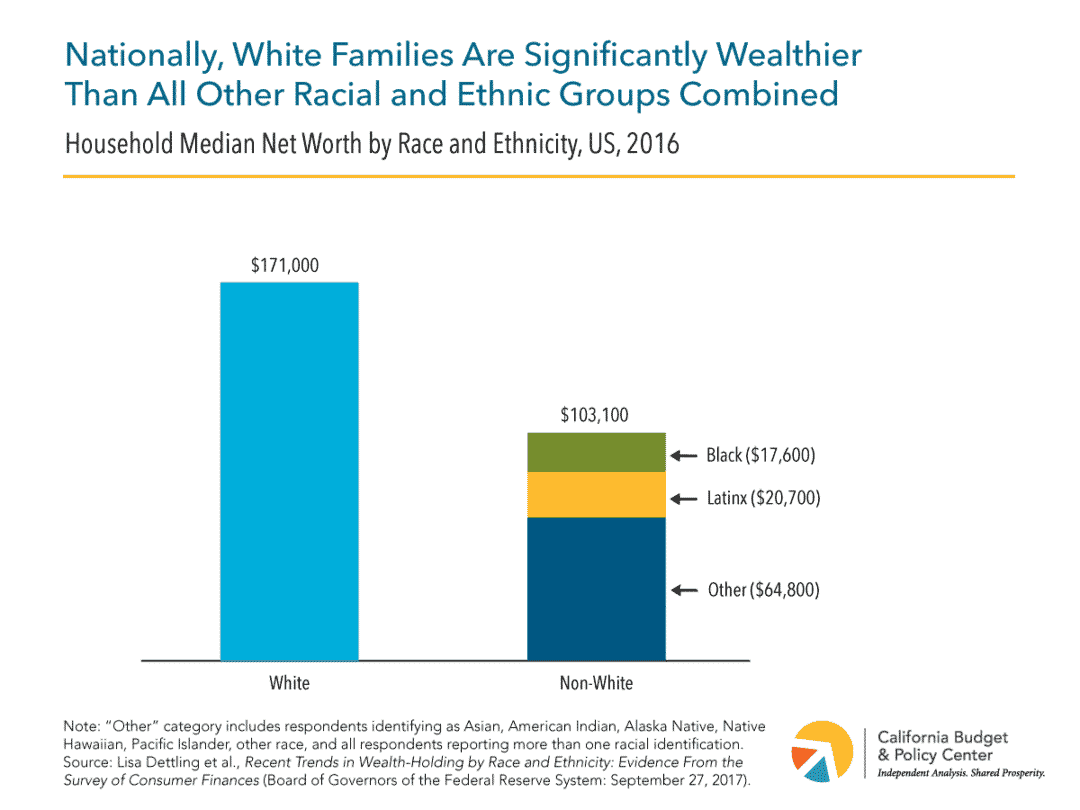Ask most people to define racism and they will default to blaming individuals for discriminatory preferences. But could there be something larger driving racism? Imagine how a group of people would interact if some of those people had a tenth or even less of the wealth of the rest, and through that inequity, had a comparable lack of ability to set the group’s norms, whether in the context of politics, law, in settings of employment, etc. Would that impact – via power relations – how the group members interact?

There’s no need to imagine such a thing. Persons of color generally have, because of massive and historic birth inequity, less money – and hence less power – than white people.
The role of birth inequity should in no way be seen to diminish other drivers of racism, including the personal animus that does exist, and which has been shown to drive police brutality and other forms of violence inflicted upon the black community. Those forms of violence, and the need to defund the police committing them, as well as other drivers, remain key.

Regardless, the assumption that being born poor is ok may drive much of what we see as racism, and we can certainly understand why concentrations of wealth and power would rather blame it on individual preferences. And they may feel secure because the possibility of true birth equity – or equal opportunities in life – has largely been hidden behind a dominant norm that treats the act of having children as a personal or private matter that entails no or miniscule obligations from the wealthy to those having children who will be born poor.

We can change that.
We can step around the curtain and demand the resources necessary to create true equality of opportunity, which is perhaps the best conception of human freedom. Why? Because a Fair Start in life is the first and overriding human right, preceding with justice the political systems that purport to assign property rights to the wealthy.
There are dozens of actions you can take to start this process. Act now.

